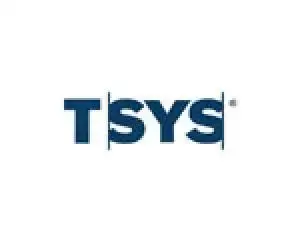
Get a Quote
Get a Quote and Find Services to Fit Your Needs 50000+ Satisfied Clients
5000+ Licenses & Registration
15 Branches across India
75 Years + Combined experience
Satisfied Clients
Services
Years Combined Experience
Get Started!

























Process of Company Registration in Nepal
A Company is a registered legal entity that aims to earn money through business. This legal Entity must get a legal permit to register in the Company Register Office of Nepal. You can define a Company in Nepal as an organization of allowed groups, individuals, or teams of people that unite in applying for an Independent Legal Organization. The Nepalese Corporate Legislation permits a registered Company in Nepal to produce, sell, service, and benefit from its services.
.png)
The Nepalese Legislation recognizes a registered company as an independent legal individual. Like a person, the Company has the right to the following:
Both Nepalese citizens, as well as Foreign Nationals can register for a company in Nepal. But every corporate Entity, such as a Company, is bound by the legal criteria of the Nepal Administration.
Nepal's Company Act of 2006 is the regulating law of Public, Private, and NPC companies for registering a company in Nepal. The OCR (Office of Company Registrar) is the competent authority for registering a business as a Company in Nepal. The OCR is located at Tripureshwor, Kathmandu. Further moving towards Company Registration, one must also understand that there are different kinds of Company Registration in Nepal. You must choose wisely which category you want your business to be registered in.
Limited Liability Companies or LLCs are Nepal's most common business model. Also, among them, a Private Limited Company is a commonly registered business model in the Himalayan country. One of the advantages of registering your business as an LLC is that the liability of its shareholder is limited to the extent of the amount made by the shareholder. A private company is a corporation whose shares are held by a few individuals, also known as shareholders, who agrees to register a company in a mutual agreement. The following corporal entities jointly own a Private Company:
.png)
A Public Company is a corporation that issues shares of stock, bonds, securities, and debentures to the general public. These financial units are made available to the public, and are traded on the open market through a stock exchange. A public company is a company that sells all or a part of itself to the public via an IPO, i.e., Initial Public Offering. Each shareholder claims part of the Public Company's assets and profits.
Also, the Nepalese Government mandates the formation of a Public Limited Company for carrying out the following operations:
.png)
.png)
The difference between Public and Private Limited Companies in Nepal is the ability to raise public funds. Public companies can raise funds from the general public by issuing the following financial units:
However, Private Companies are restricted from collecting funds from the public. They can offer the shares only to a select group of shareholders. Also, a Public Company must maintain a minimum of 7 shareholders with no upper limit. However, a private company's maximum number of shareholders cannot be more than 101.
.png)
An NPC or a Non-Profit Company is not entitled to distribute any dividends or other capital from the profits earned to its shareholders or the company members to attain any objectives. The NPCs are incorporated to develop and promote professions to protect the collective rights and interests of the persons engaged in that profession. NPCs are registered for public utility, i.e., welfare objectives. But they must not engage in distributing the dividends. Examples of such companies are hospitals, trusts, campaigns, etc.
.png)
Every Company Registration applicant in Nepal must conform to the set standards by the Companies Act of 2006 before applying hot the registration procedure:
1.png)
Every Company Registration applicant in Nepal must submit the following documents along with the company registration application:
.png)
Nowadays, Company Registration has become an easy computer-based process in Nepal. The applicant need not visit the company registration office to register the Company. Here, we have detailed the necessary procedure for registering your procedure for registration your Company in Nepal.
Every business must choose a name for itself. Also, approval of the Office of Companies Registrar is a must to register a company in Nepal. The chosen Name must not have been registered in the Registrar's Index of Company names. The Name must not be similar to a company's Name that has already been incorporated under the Companies Register. If the Registrar feels that the chosen Name can constitute a criminal offense or is offensive to the public, he will not accept such a name.
With the company registration process, the business owner must decide on the appropriate business structure. For the selection of the Company's legal structure, see the nature of the commercial activities of the Company. It can be determined by how the business files its taxes and conducts itself in the market. One can choose from the legal structures available as per the Companies Act of Nepal:
Foreign Companies generally adopt the private limited companies model for their business structures.
The applicant must submit the aforementioned documents along with the registration fee. It can be done using the online mode of application filing available at the official OCR website. The applicant can also submit the hard copy at the official OCR.
Although, most companies in Nepal are registered with the Companies Registry as Limited Liability Companies. LLC models offer multiple advantages as they are separate legal entities protecting their owners' assets from business risks. LLCs also have a relatively simple registration procedure.
If the Registrar approves the abovementioned forms and documents, the proposed company owner can download the Certificate of Incorporation and the related Business Registration Certificates from the official OCR website. These certificates are available in electronic format. For hard copies, a special request must be raised on the portal. Both copies of certificates have the same legal effect.
Our Incorporation experts provide you end to end company registration services in Nepal by assisting you in the following manner:
We ensure that your Company Incorporation services requirements in Nepal are always on time. Our professionals understand the intricacies of company incorporation procedures in Nepal. Thus, we have expedited the process – helping you incorporate your Company at an affordable price. For more Company Registration services, such as the following, consult our Incorporation Experts:
So, reach out to our Incorporation Experts and realize your dream of starting your own Company in Nepal.
Q. Where is the Company Registration Office in Nepal located?
A. The Company Registration Office OCR is located at Tripureshwor, Kathmandu.
Q. Explain the Company Registration Process in Nepal.
A. We have detailed the procedure for company registration in Nepal in the process section of this web page. In the process section, we have detailed the entire registration procedure in great depth. If you still have any doubts, you can contact the Registration experts at Registrtonwzl for further details.
Q. What are the eligibilities for online Company Registration in Nepal?
A. Every Company Registration applicant in Nepal must conform to the set standards by the Companies Act of 2006 before applying hot the registration procedure:
Q. Who offers the best company registration services in Nepal?
A. We have detailed the procedure for company registration in Nepal in the process section of this web page. The process article has detailed the entire registration procedure in great depth. If you still have any doubts, you can contact the Registration experts at Registrtonwzl for further details.
Q. What is a registered Public Company in Nepal?
A. A Public Company is a corporation that issues shares of stock, bonds, securities, and debentures to the general public. These financial units are made available to the public, and are traded on the open market through a stock exchange. A public company is a company that sells all or a part of itself to the public via an IPO, i.e., Initial Public Offering. Each shareholder claims part of the Public Company's assets and profits.
Q. Name any two Public Companies registered in Nepal.
A. Some of Nepal's Public Companies are:
Q. Who opts for a Public Limited Company in Nepal?
A. Also, the Nepalese Government mandates the formation of a Public Limited Company for carrying out the following operations:
Q. What is the Company Registration fee in Nepal?
A. The registration fee in Nepal depends on the valuation of the applicant's business. To know the specific amount pertaining to your net worth, you can connect with the Incorporation experts at Registrationwala. We will detail any information about the company registration procedure in Nepal.
Q. What is the procedure for Business Registration in Nepal?
A. We have detailed the procedure for business registration in Nepal in the process section of this web page. In the process section, we have detailed the entire registration procedure in great depth. If you still have any doubts, you can contact the Registration experts at Registrtonwzl for further details.
Q. Where can I find the list of companies registered with the Registrar Of Companies in Nepal?
A. At the official Website of the OCR
Q. How to register a Company in Nepal?
A. We have detailed the procedure for business registration in Nepal in the process section of this web page. In the process section, we have detailed the entire registration procedure in great depth. If you still have any doubts, you can contact the Registration experts at Registrtonwzl for further details.
Q. Why is the PVT LTD Company Registration preferred model in Nepal?
A. Limited Liability Companies or LLCs are Nepal's most common business model. Also, among them, a Private Limited Company is a commonly registered business model in the Himalayan country. One of the advantages of registering your business as an LLC is that the liability of its shareholder is limited to the extent of the amount made by the shareholder. A private company is a corporation whose shares are held by a few individuals, also known as shareholders, who agrees to register a company in a mutual agreement.
Q. How do Nepal Laws defines a Company?
A. A Company is a registered legal entity that aims to earn money through business. This legal Entity must get a legal permit to register in the Company Register Office of Nepal. You can define a Company in Nepal as an organization of allowed groups, individuals, or teams of people that unite in applying for an Independent Legal Organization. The Nepalese Corporate Legislation permits a registered Company in Nepal to produce, sell, service, and benefit from its services.
Q. Is a registered Company considered a separate Legal Entity in Nepal?
A. Nepalese Legislation recognizes a registered company as an independent legal individual. Like a person, the Company has the right to the following:
Q. Who can apply for Company registration in Nepal?
A. Both Nepalese citizens, as well as Foreign Nationals, can register for a company in Nepal. But every corporate Entity, such as a Company, is bound by the legal criteria of the Nepal Administration.
Q. What is the difference between Private and Public Companies in Nepal?
A. The difference between Public and Private Limited Companies in Nepal is the ability to raise public funds. Public companies can raise funds from the general public by issuing financial units, such as Securities, Shares, Bonds, and Debentures. However, Private Companies are restricted from collecting funds from the public. They can offer the shares only to a select group of shareholders.
Q. How do you define the Non-Profit Company in Nepalese Legislation?
A. An NPC or a Non-Profit Company is not entitled to distribute any dividends or other capital from the profits earned to its shareholders or the company members to attain any objectives. The NPCs are incorporated to develop and promote professions to protect the collective rights and interests of the persons engaged in that profession. NPCs are registered for public utility, i.e., welfare objectives. But they must not engage in distributing the dividends. Examples of such companies are hospitals, trusts, campaigns, etc.

★ ★ ★ ★ ★
I very much appreciate the fact that you guys possess tremendous knowhow of private limited company incorporation. You have exhibited professional and respectful manner towards my query and I would seriously recommend you guys to all the folks looking for outstanding business services.

★ ★ ★ ★ ★
Thanks to their support, I got my trademark successfully. I highly recommend their services for anyone needing help with their intellectual property. The person assigned to me was very cooperative and helpful.

★ ★ ★ ★ ★
Thanks to their support ragistrationwala team, I got my IP-1 license successfully and special thanks to Miss.Kanishka for your great and timing support !!!!!! I have archived my goal one step forward... Thanks for the entire team....

★ ★ ★ ★ ★
Really helped a lot in getting my both VNO licenses. Great experience working with the team and very humble team, thanks for providing the vno license on time.

★ ★ ★ ★ ★
I had a good time working with Registrationwala. Good team. I would recommend their services to others.

★ ★ ★ ★ ★
It was extremely great service of Registrationwala consulting firm, and this firm is providing the best services and worry about the client's required services along the client's satisfaction.

★ ★ ★ ★ ★
Superb Experince! Within no time the trademark registration was on.Highly professional team. I am very much Impressed with the prompt response and efficiency.Thank you.

★ ★ ★ ★ ★
We had taken ISP license from registration wala and the supporting person is very helpful to taken that license his communication and his work is satisfactory and thanks for those services

★ ★ ★ ★ ★
I sincerely appreciate your prompt support in helping me get the access license so quickly. Your professionalism and efficiency are truly commendable. Thank you for going above and beyond to assist me. Keep up the great work!